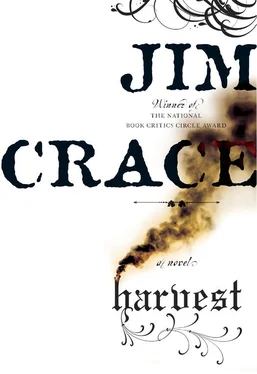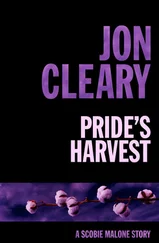But as soon as I’m out of earshot I let my whistling stop. Now I am talking to myself, drawing up a list of things to do. At first it feels like any other day at summer’s end. There’s fuel to cut and stack. There’s field keeping and hedge trimming that must be done. There’re falling walls and damaged barns to fix. This is the season of repair. It also is the season of prepare, when we make ready for the coming spring. I know that I will need some oxen for my task. We have a team of four allowed to pasture on the fallow fields and in the commons. They are sweet-natured animals, despite their crescent horns and deep bullish dewlaps. They have only to rest and eat all day and contend with nothing but the flies. The one thing they have to bother them is work, and that’s sporadic hereabouts. It saves them from the butcher, though. So long as they are strong, they’ll not end up as beef or leather. We’ll not make cups out of their horns, or fashion bobbins, toys and dice out of their bones, or even boil down their hoofs for glue, until their natural deaths. Our oxen lead an easy life.
I can’t remember exactly where we have tethered them, and so I have to go from gate to gate until I catch sight of their white snout patches and the insides of their comical pink ears. Their bodies — donkey-gray and mottled — blend in with the undergrowth. There’re only two of them today. The smallest of the four. My neighbor families have taken the other two with them, first to draw their carts of family goods and then, perhaps, to trade them at the next village they reach. I rope the remaining pair, lead them on their strong, bone-weary legs down the lane and tie them at our tool barn, where they’re content to graze on fence weeds by the door. Oxen do not have the reasoning of horses and so they tend to be more pliable and patient. They’re steadier; their winter keep is cheaper too. A horse will smell the saddle in another room or hear the pulling on of riding boots and start to kick in protest. An ox won’t know he’s needed for draft work until the moment that he has to pull — and even then he can’t be bothered to protest.
I’ve always loved this little barn. It’s ramshackle. It never mattered if the light got in, or rats, or rain: we didn’t keep anything edible inside. We let the martins and the swallows nest in it, the robins too. We didn’t mind if nettles set up house. When I was a greenhorn here and working none too usefully with the Saxtons on the land, I used to be the one they’d send — their big, slow-witted child — to collect and return their working tools. I think they had a lot of fun with me, demanding things they knew I could not recognize by name. Bring us some seed-lips and the suffingales, they’d say. We need some hog-yokes and a beetle wedge. Even when I’d learned exactly what they meant, I’d still persevere with bringing back the least required of implements — a mold spear when they meant a cradle scythe; a weed hook when they wanted one for reaping — just for the pleasure of their laughter. And also for the pleasure of having to visit the tool barn once again.
Today, the tool barn is sweating in the heat, a heat that promises a storm. I need — we need, my volunteer and I — to get to work. The swing plow is the lighter of the two and nearest the barn door, but I know that with just two oxen instead of the usual team of four and only two pairs of hands to manage it, I need a set of wheels to support the beam at its fore end. To plow today without a set of wheels would be too difficult and punishing. I’d not get any depth of furrow. The implement would throw its weight against the stilts and handles, and nothing we could do would tame it. So, I pull the swing plow to the side, and in the slanting shafts of light, busy with the dust that I am throwing up, I find the parts of the second plow, the one with wheels. I pull them clear and start to line them up outside the barn.
I do not need to go back to the pillory for my help. He is standing with the oxen, watching me. All three of them are watching me. He must have heard the clatter of the tools, and understood that he should come. He’s ready for the labor. I cannot say he seems a happy man, but at least he looks more upright than he did this morning. And his color has improved, no longer donkey-gray and as mottled as the beasts. He’s brought the sword with him, I see. But that seems sensible. He will not offer any help until I say he should. He doesn’t even greet me. I am the elder man and might expect at least a nod. He does speak, though. “Nose before ear,” he says, without any warmth or flavor to his voice.
I stand and nod at him, surprised. How has he understood so much? It’s not a phrase I’ve heard for quite a while. Possibly he only means it plainly. He thinks I’m not a practiced countryman. He wants me to remember that when I put the plow parts together, the coulter knife that opens up the soil — the nose — must go before the share, the wider blade. And that giant’s arrowhead which cuts the furrow must go before the moldboard — the ear — that throws the ridge. Only a fool or a townsman — me, he thinks, perhaps — would attempt anything different. Without the coulter at the front, the earth will not give way. Without the moldboard at the rear, the earth will not be sufficiently turned.
But there is a greater meaning to the phrase. It is a warning — among country folk, at least — that life should be allowed to proceed in its natural and logical order. In other words, you do not eat before you cook, you do not weave before you shear, you do not attempt to light the fire until you have the kindling, and — to the point — you cannot reap your corn until you’ve plowed and sown seed. He’s obviously guessed what this day of work will be. He understands its greater meaning too: that plowing is our sacrament, our solemn oath, the way we grace and consecrate our land. Not to mark our futures in the soil before the winter comes is to say there’s no next year. I cannot admit to that. The coming spring must be defended. So, we’ll put the nose before the ear. And then we’ll plow.
“Come help me, then,” I say.
As he moves toward me, I can tell he must have been a plowman in the past, before he was a newcomer. His skew is very slightly whiffed, another country phrase. You can always spot a plowman from his uneven legs, they say: the long one’s for the furrow and the short one’s for the ridge. So I let him do the assembly work. I steady the share-beam while my new associate secures the blades, the moldboard and the yoke. And then we set off for the barley stub, a pair of willing oxen and a pair of workingmen, intending to stir and loosen soil one final time.
The barley field has lost much of its spruce since harvesting. It takes only a few days of neglect for weeds and tares to settle in. Already there are newcomers, a tough-leafed smear of green where there was rusty gold. But still the marks my neighbors made are there to read for anyone that knows them well. That knew them well, I ought to say. The stubble has preserved their signatures. Here is our proof we brought the harvest in ourselves. I can tell where neighbor Carr and men like him — thorough, puritanical — have swept their scythes. The cut is low, the stubble short, no longer than a thumb. They haven’t missed a blade of straw, and I am sure they won’t have missed much barley either. Gleaners shouldn’t step in neighbor Carr’s unstinting wake, unless they don’t want any ale for the winter evenings. The wavy cut is Brooker Higgs’s best work. He’s always busy talking when he reaps. His head is raised. His circles are too large. The more he reaches out, the more of the corn he misses. The tallest stub, up to the knee in places, is eager children’s work, or the best that Willy Kip with his bad back can do. His portion looks as if the field was the victim of a massacre. Some horsemen came and, leaning from their saddles, felled the barley with their swords.
Читать дальше












